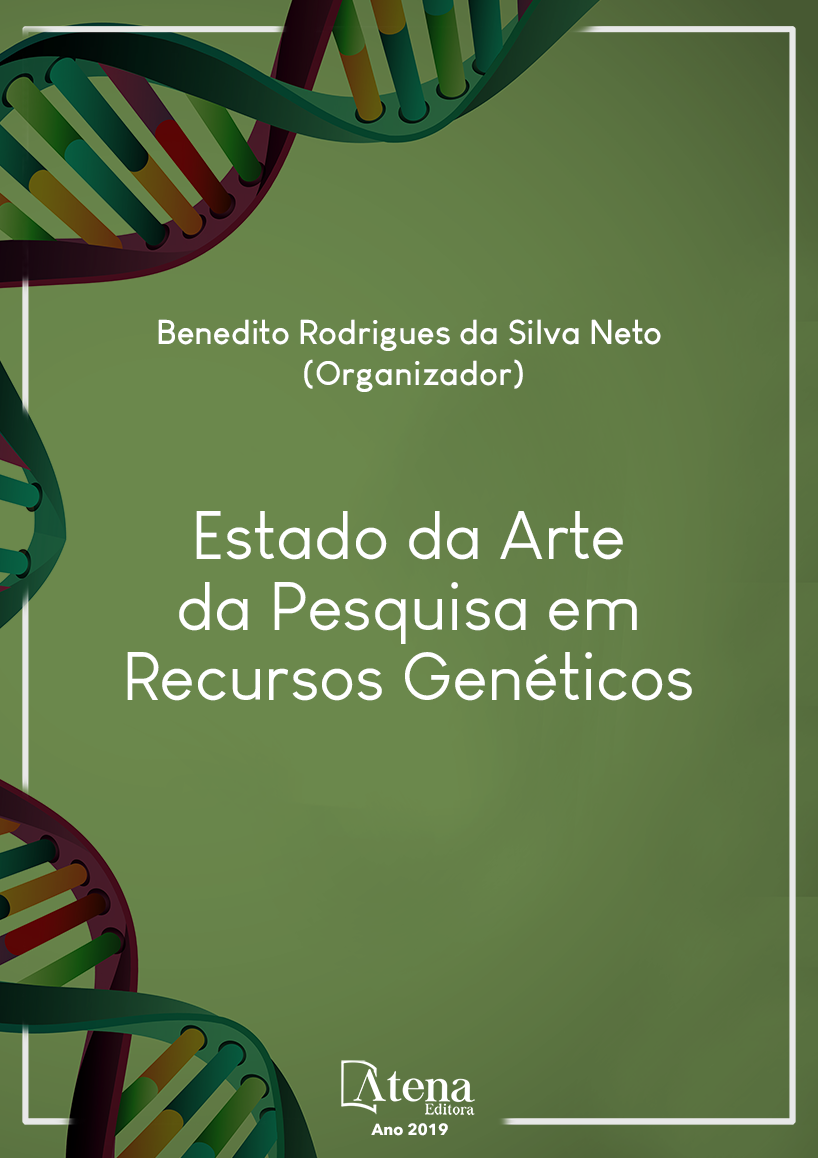
ESTUDO DA DIVERSIDADE GENÉTICA DA ABELHA TIÚBA (MELIPONA FASCICULATA SMITH, 1854 - HYMENOPTERA, APIDAE) BASEADA NO MARCADOR ISSR
A abelha Melipona fasciculata
Smith, popularmente conhecida como Tiúba,
compreende as abelhas nativas e sem ferrão,
usadas principalmente para a produção de mel,
com uma grande predominação da espécie no
Estado do Maranhão. O objetivo desse trabalho
foi avaliar a diversidade genética antes e após o
manejo (seleção) das abelhas, com o marcador
molecular ISSR. Foram coletadas abelhas
das 32 colônias localizadas no meliponário na
Universidade Estadual do Maranhão, antes e
depois da seleção. Realizamos 64 extrações
de DNA genômico das abelhas, sendo 32
antes da seleção e mais 32 após a seleção,
baseada na metodologia da técnica descrita
por Doyle & Doyle (1987), foi submetido a
eletroforese para confirmar a presença do
DNA. O material genético ele foi submetido a
PCR com seis primers do marcador molecular
ISSR. A diversidade genética foi de 0,17 antes
seleção e 0,24 após a seleção. Na análise de
variância AMOVA, foi possível verificar que a
diferenciação genética ocorreu total dentro da
população, o que pode ser associado ao fluxo
gênico restrito desses indivíduos e o índice
de fixação (Fst) ele se mostrou em um valor
negativo de -0.0232. O agrupamento pelo o
método de UPGMA permitiu a formação de
quatro grupos distintos, aparecendo somente
dois indivíduos geneticamente distantes. O
marcador ISSR ele se mostrou de fundamental
importância para o estudo da diversidade da
abelha Melipona fasciculata nesta população.
ESTUDO DA DIVERSIDADE GENÉTICA DA ABELHA TIÚBA (MELIPONA FASCICULATA SMITH, 1854 - HYMENOPTERA, APIDAE) BASEADA NO MARCADOR ISSR
-
Palavras-chave: Abelhas Sem Ferrão, Seleção, Variedade genética.
-
Keywords: Bees without stingers; selection; genetic variety.
-
Abstract:
The bee Melipona fasciculata Smith, popularly known as Tiúba, includes
native and stingless bees, mainly used for the production of honey, with a great
predominance of the species in the State of Maranhão. The objective of this work
was to evaluate the genetic diversity before and after the management (selection)
of the bees, with molecular marker ISSR. Bees were collected from the 32 colonies
located at the meliponário at the State University of Maranhão, before and after the
selection. We performed 64 extractions of genomic DNA from the bees, 32 before
selection and 32 after selection, based on the technique methodology described by
Doyle & Doyle (1987), was submitted to electrophoresis to confirm the presence of
DNA. The genetic material was subjected to PCR with six primers of molecular marker
ISSR. The genetic diversity was 0.17 before selection and 0.24 after selection. In the
analysis of variance AMOVA, it was possible to verify that the genetic differentiation
occurred totally within the population, which can be associated to the restricted gene
flow of these individuals and the fixation index (Fst) it was shown in a negative value of
-0.0232. Grouping by the UPGMA method allowed the formation of four distinct groups,
appearing only two genetically distant individuals. The ISSR marker was shown to be
of fundamental importance for the study of the diversity of the bee Melipona fasciculata
in this population.
-
Número de páginas: 15
- José de Ribamar Silva Barros
- Gustavo Lucas Bezerra Tinoco
- Jonas Alves Mesquita
- Hugo Almeida Ferreira
- Laelson Rodrigues Ferreira e Ferreira
- Edyane Moraes dos Santos
- Diego Marques Costa Silva


